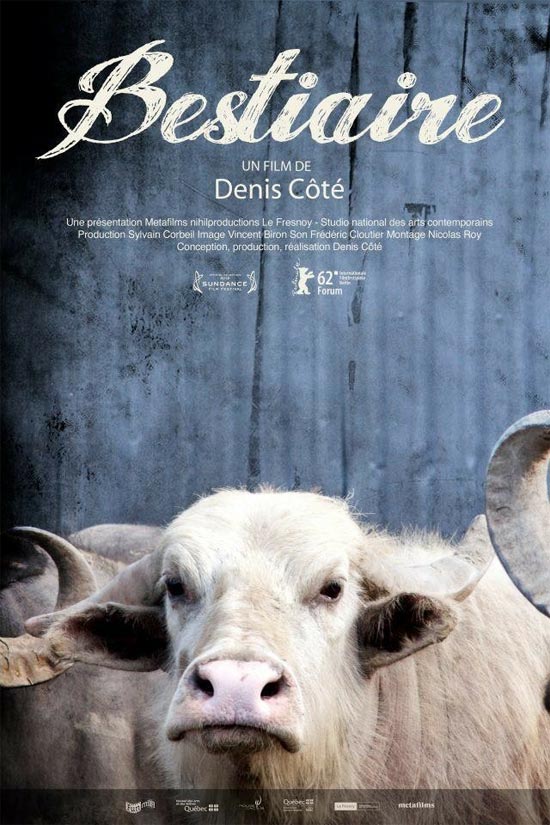If one were to pose this classic philosophical question to the director of Bestiaire, Denis Côté, Côté would probably respond with an emphatic yes. Bestiaire, centered around Montreal’s open-air zoo, Parc Safari, seems to be a long and slow-paced response to this exact question.
Directed by Denis Côté, Canada
 In the preview trailer for Bestiaire, multiple horses crowd about in a stable, standing vividly before a brightly colored blue wall. The shot is beautiful in its simplicity, but the horses do exactly what one might expect horses to do when sitting in a stall by themselves — next to nothing.
In the preview trailer for Bestiaire, multiple horses crowd about in a stable, standing vividly before a brightly colored blue wall. The shot is beautiful in its simplicity, but the horses do exactly what one might expect horses to do when sitting in a stall by themselves — next to nothing.
Director Denis Côté turns uses extended sequences, often looking more like still images than moving film, to study animals and human beings living and working in their native habitats. For minutes on end, Côté trains his gaze upon still zoo and barn walls long past the moment when animals have left the camera’s frame. He eyeballs single bolt locks with only the tip of a horned goat peeking into sight, and many of the shot are more focused on non-moving objects than moving ones.
Though very little happens throughout Bestiaire, the film is a minimal visual delight made all the more compelling by its lack of dialogue and its accurate display of the mundane. Despite the warm subject matter, Côté’s choice of blue-toned visuals and capture of metallic ambient sounds seem to remove all animism from the moving, living beings, and it is only in the rare moments where the film swells in activity that one can connect to the subjects on a more carnal level. When a pair of zebras begin to battle within their confines, previously gentle mechanical reverberations bouncing off of metal walls turn into a raucous clamourings of noise, almost like industrial tracks created from ambient sounds.
Every sound and image in Bestiaire, isolated or lonely as it might seem as set within the walls of captivity, is natural — beautifully natural. Even when man-made objects dominate the foreground, there is a sense of naturalism to be found in the unfolding of everyday objects, just as they will. Human intervention and interaction are minimal in Bestiaire, but where they are found, are far from flagrant or eye-catching, just as untrained and uncalculated as those of the other animals.
Whether Côté desires to send home such a message is unclear, but one concludes a viewing of Bestiaire with the keen sense that, regardless of what cages all beings have made for themselves, or have had constructed around them, they all move at their own biological and instinctual rhythms, each singularly worthy of attention.
May 18th @ 7:00pm, SIFF Film Center
May 19th @ 6:00pm, SIFF Film Center
Ω






